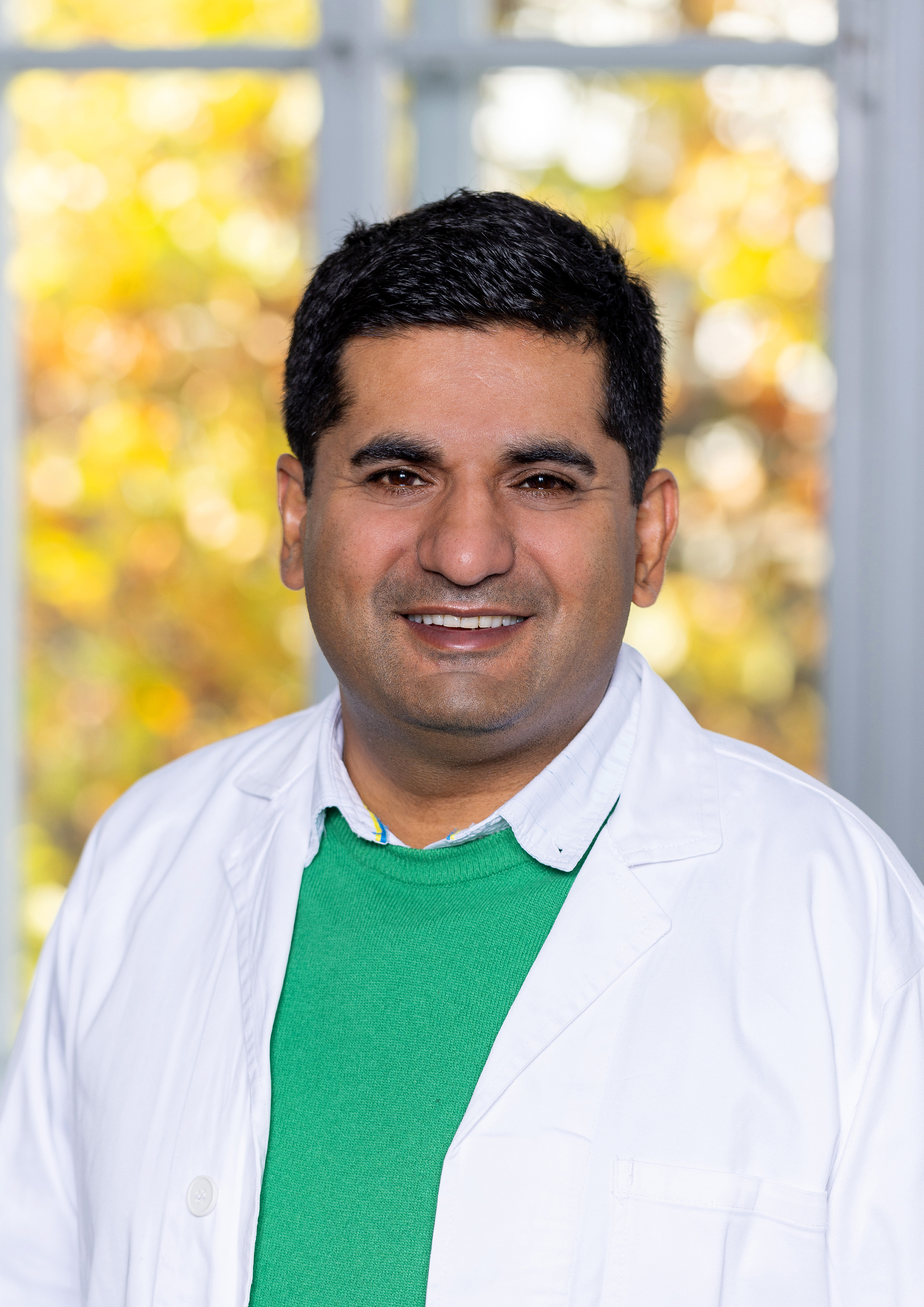Our group is studying how myeloid cell activation, differentiation and function is impacted during the clearance of dying/dead cells also called efferocytosis. Defective efferocytosis by myeloid cells especially by scavenging cells called macrophages is associated with inflammation and tissue damage and plays a role in various diseases, including obesity related diseases, such as nonalcoholic fatty liver disease (NAFLD), it‘s aggressive inflammatory form, nonalcoholic steatohepatitis (NASH) and hepatocellular carcinoma (HCC). Key questions fueling our research are: When a cell dies, how do the secreted metabolites and lipids therein and the celluar corpse reprogram macrophages? How is efferocytosis regulated by the lipid-rich enviroment present during obesity? How does lipid scavenging and efferocytosis influence NASH and HCC development? What is the impact of local versus systemic signals on disease progression and macrophage metabolic reprogramming?
To answer these questions, we combine cell culture models with both preclinical animal models of obesity driven hepatic fibrosis/cancer and patient-derived material. Applying various high throughput approaches herein, we aim to identify new pathways and targets altered in inflammation and cancer.
More information on our research activities (in German) can be found here.
Biosketch

Omar Sharif studied Molecular Biology at University of Glasgow (UK) and obtained his PhD in Biochemistry at University of Dundee (UK). He perfomed post-doctoral training in the laboratory of infection biology with Prof. Sylvia Knapp at the Medical University of Vienna. There, he worked on several immune receptors primarily expressed by myeloid cells that regulate the intensity and duration of innate immune responses during clinically relevant bacterial infections, such as pneumococcal pneumonia. He obtained his first Austrian Science Fund (FWF) stand alone project in 2013 and was senior post-doc and project lead at the Research Centre for Molecular Medicine of the Austrian Academy of Sciences (CeMM) from 2013 to 2016. From 2017 to 2018, he was senior scientist at the Ludwig Boltzmann Institute of Cancer Research, Vienna. In 2018, he joined the Centre for Physiology and Pharmacology at the Medical University of Vienna, where he is currently a Principal Investigator. His lab focuses on adipose tissue and liver macrophage biology and how macrophage mediated inflammatory responses impact organismal physiology in health and disease. Aside from directing CDLab-InSpiReD, he is currently project lead on an FWF project examining the relative contributions of TREM2 expression in adipocytes versus macrophages to metabolic disease.
Selected Papers
- Sharif O#, Brunner JS, Korosec A, Martins R, Jais A, Snijder B, Vogel A, Caldera M, Hladik A, Lakovits K, Saluzzo S, Boehm B, Gorki AD, Mesteri I, Lindroos JC, Tillmann K, Stoiber D, Menche J, Schabbauer G, Bilban M, Superti-Furga G, Esterbauer H, Knapp S# (2021).
Beneficial Metabolic Effects of TREM2 in Obesity are Uncoupled from its Expression on Macrophages
Diabetes Feb 24. doi: 10.2337/db20-0572 #Co-corresponding authors - Brunner JS, Vogel A, Lercher A, Caldera M, Korosec A, Pühringer M, Hofmann M, Hajto A, Kieler M, Garrido LQ, Kerndl M, Kuttke M, Mesteri I, Górna MW, Kulik M, Dominiak PM, Brandon AE, Estevez E, Egan CL, Gruber F, Schweiger M, Menche J, Bergthaler A, Weichhart T, Klavins K, Febbraio MA, Sharif O*,#, Schabbauer G*,# (2020)
The PI3K pathway preserves metabolic health through MARCO-dependent lipid uptake by adipose tissue macrophages.
Nat Metab. Dec;2(12):1427-1442. doi: 10.1038/s42255-020-00311-5. *Equal senior co-authorship, #Co-corresponding authors - Esparza-Baquer A, Labiano I, Sharif O, Agirre AL 1, Oakley F, Rodrigues PM, Zhuravleva E, O'Rourke CJ, Hijona E, Agüero RJ, Riaño I, Landa A, Casta AL, Zaki MYW, Munoz-Garrido P, Azkargorta M, Elortza F, Vogel A, Schabbauer G, Aspichueta P, Andersen JB, Knapp S, Mann DA, Bujanda L, Banales JM, Perugorria MJ (2020).
TREM-2 defends the liver against hepatocellular carcinoma through multifactorial protective mechanisms.
Gut. Sep 9;gutjnl-2019-319227. doi: 10.1136/gutjnl-2019-319227. - Perugorria MJ#, Esparza-Baquer A, Oakley F, Labiano I, Korosec A, Jais A, Mann J, Tiniakos D, Santos-Laso A, Arbelaiz A, Gawish R, Sampedro A, Fontanellas A, Hijona E, Jiménez-Agüero R, Esterbauer H, Stoiber D, Bujanda L, Banales JM, Knapp S, Sharif O*,# Mann DA*,# (2018)
Non-Parenchymal TREM-2 protects the Liver from Immune-mediated Hepatocellular damage.
Gut. Jan 27. pii: gutjnl-2017-314107. doi: 10.1136/gutjnl-2017-314107 *Equal senior co-authorship, #Co-corresponding authors - Jais A, Einwallner E, Sharif O, Gossens K, Lu TT, Soyal SM, Medgyesi D, Neureiter D, Paier-Pourani J, Dalgaard K, Duvigneau JC, Lindroos J, Zapf T, Amann S, Saluzzo S, Jantscher F, Stiedl P, Todoric J, Martins R, Oberkofler H, Müller S, Hauser-Kronberger C, Kenner L, Casanova E, Sutterlüty-Fall H, Bilban M, Miller K, Kozlov A, Krempler F, Knapp S, Lumeng CN, Patsch W, Wagner O, Pospisilik AJ, Esterbauer H (2014).
Heme Oxygenase-1 Drives Metaflammation and Insulin Resistance in Mouse and Man.
Cell Jul 3;158(1):25-40. DOI: 10.1016/j.cell.2014.04.043
